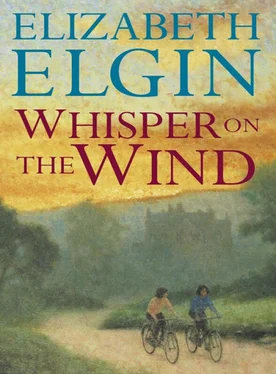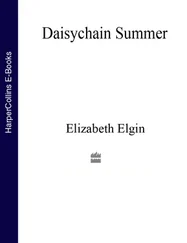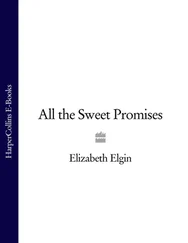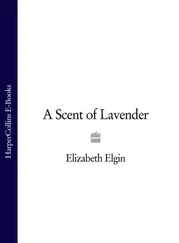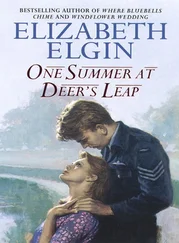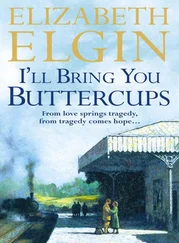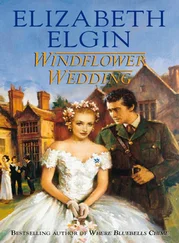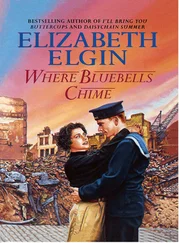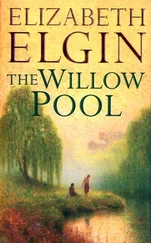‘Well then,’ she said, wondering why her voice sounded so whispery and strange. ‘I’ll just put on my hat and coat.’
A short, well-cut top coat; a round, leather-tied hat, though just how she was expected to wear it she didn’t know. She placed it comfortably on the back of her head, picked up her gas mask and said again, ‘Well then.’
Minnie Jepson walked down the passage, opened the front door then stood, arms folded, waiting.
Kath picked up her case, manoeuvring it with her knee to the doorstep. Then she put it down with a thump, placed her hands on the elder woman’s shoulders and kissed her cheek.
‘So-long, Aunt Min. Take care of yourself. I’ll write, like I promised.’
‘Ta-ra, girl. God bless.’
Kath picked up her case. She didn’t turn round – you didn’t ever look back in wartime – and she wasn’t surprised to hear the door slammed shut behind her. Even before she reached the gate.
Slowly she walked to the top of the street. The churning and thumping were even worse now and she felt strange in her uniform, especially in the breeches and knee-length socks.
‘Alderby St Mary,’ she whispered. Somewhere in the North Riding of Yorkshire and a million miles away, thank God.
The letter addressed to Rosalind Fairchild came by the second delivery on the 18th of December. It bore the words On His Majesty’s Service and she had expected it daily for the past two weeks. Sucking in her breath she opened the envelope with a swift, decisive tear, quickly scanned the single sheet of paper, then looked up, her face a blank.
‘It’s all right, Gran. They’re letting me stay at Ridings. I don’t have to be called up.’
Hester Fairchild let go her indrawn breath. She had been worried; useless to deny it. Government departments usually did the exact opposite to what was expected or hoped of them, but for once it seemed they had got it right. She was more relieved than her face showed, for war was hateful to her. War – the last one – had taken her husband and she had no wish for this one to snatch away her granddaughter.
‘I suppose it’s official, now – puts you in a reserved occupation?’
‘Seems it does. I’m exempt from call-up, it says here, but I can’t change my job without first asking them.’ She shrugged. ‘I suppose I’d better let Mat Ramsden know. At least I’m one of his problems solved.’
So now it was official. She had a reserved occupation; work considered so important that she was exempted from call-up. And farming was important. Now into the third year of the war, food was becoming alarmingly short. Already it was strictly rationed, with rumours of cuts after Christmas and farmers were left in no doubt that they must grow as much food as they could, and then some, with every acre of land used to capacity. Farms and farm-workers became important almost overnight and vital to the war effort, Mr Churchill said. Britain’s rundown farms were suddenly in the front line. For the first time since the last war ended, farmers were needed.
‘Read it.’ Roz handed over the letter.
She was glad it was all settled, that she could stay in Alderby St Mary, though not so very long ago a small, secret part of her had longed to join the armed forces. She had wanted to wear a uniform, to be seen to be doing her bit for the war, but that was before Paul; before she had gone to a dance at the aerodrome and met the tall, flaxen-haired navigator. Once she would have scoffed at the idea of love at first sight. That kind of feeling couldn’t be love, she’d have said. Instant attraction, perhaps; something sexual. But something strange had taken hold of her that night; some feeling she had not known to exist had set every small pulse in her body beating exquisitely and her mouth had gone dry as he crossed the floor towards her. He hadn’t even asked her if she wanted to dance. He’d held out his hand and smiled as if their meeting was meant to be. They had danced the floor twice round before he said, ‘Paul. Hullo.’ And she had whispered, ‘Rosalind. Roz. Hullo, yourself.’
At least she thought that was what she said, but her heart was thudding in her ears and she’d only been sure of his nearness and the absolute rightness of their being together.
Paul Rennie. Crew member of the Lancaster bomber K-King, based at the hastily constructed aerodrome not two miles away. Paul, who had flown his eighth bombing raid the night before and who would soon be on his thirteenth. Operational flight number thirteen; the dicey one, after which it would all be easy until the thirtieth, which would mark the end of the tour.
His first ‘op’ had been a swine, he’d said. He couldn’t remember a lot about that first raid over Germany save that it had been on Bremen and that the sickness in the pit of his stomach had been nothing at all to do with turbulence. But Paul was like that. He didn’t think that flying was a piece of cake; bloody stupid of him, really, ever to have volunteered for aircrew. But he was smiling as he said it and his eyes had been laughing, too. Flying Officer Paul Rennie, who lived near Bath and had a twin sister called Pippa who was a Waaf, somewhere in Lincolnshire.
She would see Paul again tomorrow at the Friday-night dance – if he wasn’t flying, that was. If this viciously cold weather continued all week; if a wind from the south didn’t banish the frost overnight.
‘Won’t be long, Gran.’ She shrugged into her coat. ‘Just going over to the farm.’
Mat would be glad they were letting her stay, just as Gran was. Even if she had never met Paul, it made sense that she should remain in Alderby, because Gran needed her and now Ridings needed her too; a need which had first arisen the day the representative from the War Agricultural Executive Committee – the man from the War Ag. they called him – had come to Ridings. That day, he had gravely and silently paced the boundaries of the parkland surrounding the house, the game-cover and all the grazing Gran rented to Mat for his beef cattle. He had made notes and calculations then said he hoped Mrs Fairchild appreciated that all these idle acres must come under the plough?
‘Technically, you see, parkland is grassland and grassland is an extravagance. It just doesn’t produce enough food to the acre. It’s wasteful, and –’ He shrugged away the remainder of the sentence. He had no need to explain or to ask. It was simply a case of going politely through the preamble. The Government needed more wheat and barley, potatoes and sugarbeet and farmers must grow them. A landowner with two hundred-odd acres of parkland doing nothing must contribute too. Or lose her land.
‘We’ll confirm it officially, Mrs Fairchild. And I think it might be reasonable to expect it to be ploughed –’ he waved an all embracing arm, ‘by the first of March, next?’
Hester Fairchild nodded apprehensively. ‘The beeches?’ she asked him, gazing stunned down the majestic tree-lined drive. ‘And the oaks? I don’t have to – surely you aren’t asking me to –’ Her lips refused to form the words have them cut down. There were more than a hundred, and to fell such magnificent trees was unthinkable.
The man from the War Ag. pursed his lips. ‘I think we can leave the trees – plough round them.’ He had acquired over two hundred acres for cultivation with less trouble than he’d expected; he was willing to leave the woman her trees. ‘I’m afraid, though, that the spinney …’ He condemned the game-cover with a nod. ‘The rough woodland must go. You’ll appreciate that?’
‘Yes. Of course.’ The mistress of Ridings agreed at once; there were no trees of importance there.
So the man from the War Ag. had thanked her, shaken her hand and wished her good-day, well satisfied. She watched him drive off in his official car wondering how she was going to be able to plough up all those acres, tear out game-cover, and cultivate and harvest crops for the war effort.
Читать дальше
